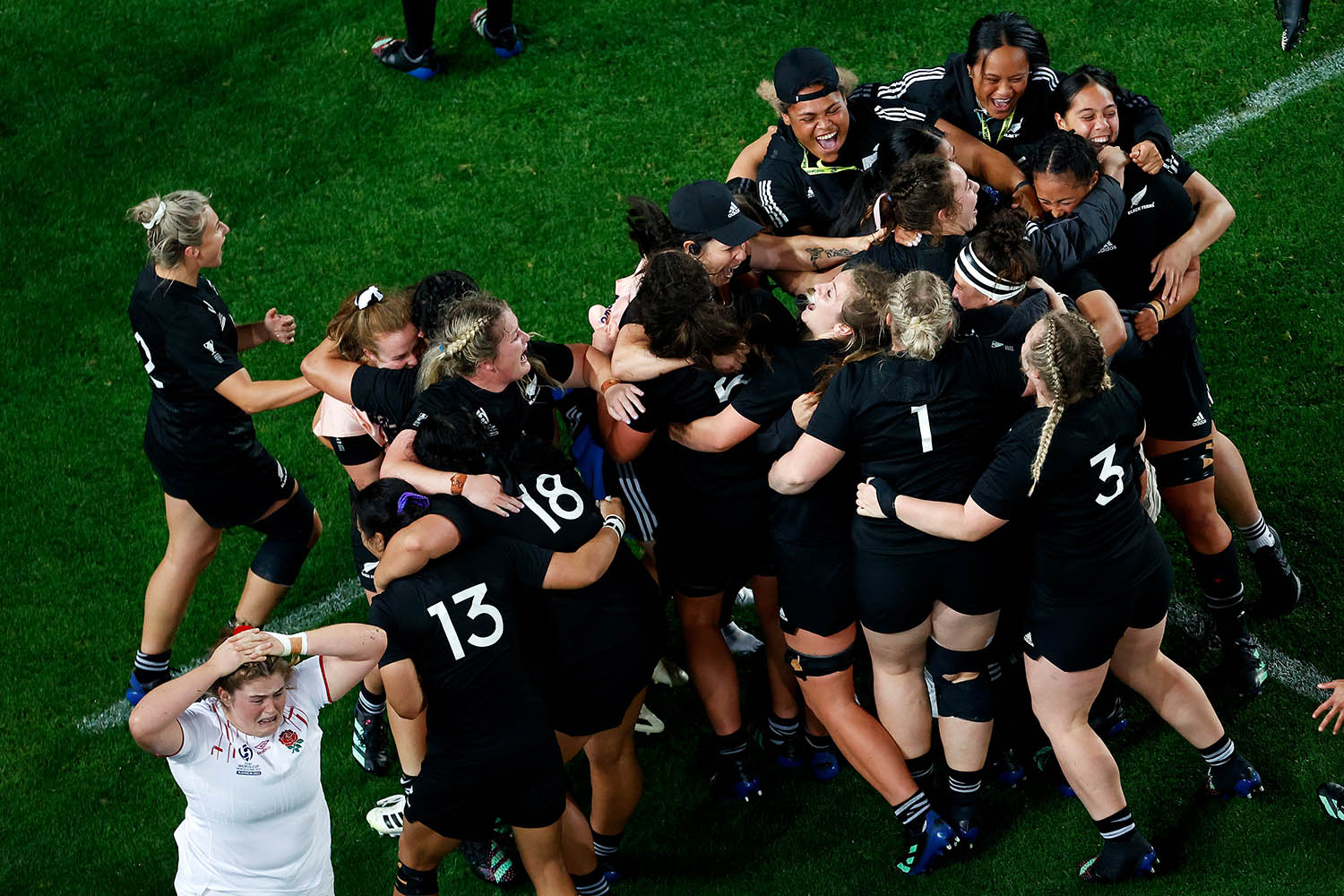The bitter taste of an unattained pinnacle hung in the air as the England women’s rugby team stood still, hands on hips, taking in deep breaths of cool air in Eden Park stadium. They could barely move, almost frozen in time, as they watched New Zealand celebrate wildly only metres away from the try line where the Red Roses had gathered. The New Zealand crowd roared, lights flashed, and the sound system blared out celebratory music, but for the England team, there was only silence.
The Red Roses watched the world move on without them. Their bodies were worn out from a long tournament and their hearts were shattered. The weight of expectation and the relentless pursuit of glory converged into a single devastating moment of realisation. They had lost the World Cup final, again. It was a reminder that in the arena of sport, victory and defeat are inextricably entwined, each lending meaning to the other, juxtaposed in the close quarters of a rugby pitch as one team dances and the other cries.
Each player’s mind was filled with questions of what ifs and what abouts. The match had been lost in one single moment that would define so much that followed. With the clock clicking close to full-time and England behind 34–31, hope ignited in the eyes of the Red Roses as they were given the penalty that could save them. The decision was made to kick the ball straight out, from the five-metre line, and aim for a last-gasp try: a kick to the corner, a lineout and a driving maul, the cornerstone of England’s game. Everything was riding on this one act.
The ball was thrown and destiny hung on a precipice, suspended between triumph and heartbreak. If the ball lands in England’s hands, they can win the World Cup. If it falls to New Zealand, England lose the World Cup. Amid the chaos of bodies grappling in the air, fate wrote its next chapter. With a ruthless display of skill and timing, New Zealand seized the opportunity. In a fleeting moment of anguish, the ball slipped from the grasp of Abbie Ward, the England forward, into the clutches of the Black Ferns. England were on a 30-match winning streak before this game.
“Sport is cruel,” uttered Sarah Hunter, the England captain in the moments after the final whistle had blown. She had been here before. New Zealand are England’s closest rivals and had beaten them in four World Cup finals before this one. Sarah had played in two of them, now three.
As the team moved slowly together and ambled into the changing rooms, words were quietly spoken and friends were embraced, in shock at what had just unfolded. For many of the players, this was the first time they had lost in an England shirt.
The journey from crestfallen warriors to resilient champions begins anew, immediately. It is in these moments of profound disappointment that the true character of a team emerges. In the days, weeks and months that followed, the team gathered their shattered dreams and channelled their resilience into determination. Never would they feel that way again. The pain of loss cuts deep. And so, with a heavy heart but a strong resolve, they gather the fragments of shattered dreams and set their sights on the future, knowing that defeat today may well fuel the fire of triumph tomorrow.
Their challenge now is working out how to turn winners into champions. The team know how to win, but why couldn’t they win on the biggest stage? And what, if anything, can be gleaned from a match where victory hinged on the slightest of margins?
It was in that very pursuit that the team turned to the percentages. As they regather and rebuild, they look at the 1% improvements they could each make to take them that one, crucial, step further.
The Red Roses is available from all good book shops or at birlinn.co.uk/product/the-red-roses
Newsletters
Choose the newsletters you want to receive
View more
For information about how The Observer protects your data, read our Privacy Policy
Photograph by Andy Jackson - World Rugby/World Rugby via Getty Images

